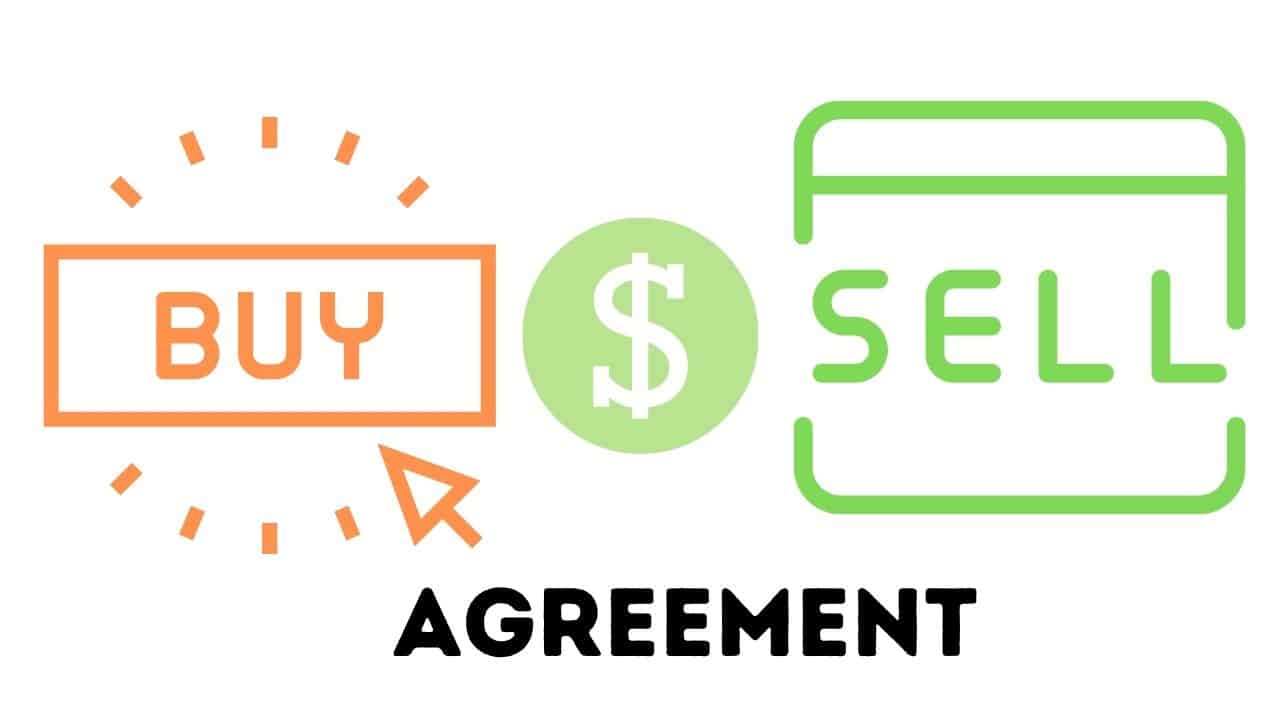When starting and running a small business, the entrepreneur is faced with thousands of decisions. If you’ve made the important decision to accept credit card payments, you’ll need to choose a credit card payment processing firm. Credit card processing costs, approval rates, and equipment are just some of the factors that should be considered when selecting a credit card payment provider. We’ve compiled a list of 13 reliable credit card payment systems that offer a wide variety of features and customization possibilities to help small business owners make an informed decision when selecting a processing partner.
What are Credit Card Processors?
The credit card processing service acts as an intermediary between your company and the credit card company used by your clients. A payment processor is another name for this service (not to be confused with a payment gateway). If you don’t have one, you can’t take credit card payments.
The processor receives and processes transaction data, communicates this data to the issuing bank, and finally approves the transfer of funds between the buyer and seller.
A company’s cheapest option may be another’s most expensive, as each operates under its own cost structure. The most cost-effective payment method will be a function of your business’s normal transaction size, industry, and volume of sales.
What to Consider When Choosing
Every business is unique, and as yours grows, you may find it necessary to transfer service providers. Prior to making a decision, think about:
#1. Monthly Fees
The services of certain businesses are available for a single monthly fee. High monthly fees, in addition to the fees associated with processing payments, can soon pile up.
#2. Transaction Fees
Each processor has its own transaction fee structure. This charge is often a percentage of the total. You will be charged a small per-transaction fee in addition to a percentage of the total. Once you accomplish a certain monthly amount of online payments, several companies offer lower transaction fees.
Interchange plus pricing is flexible but always equitable. Varying cards have different interchange fees. The interchange rate increases in proportion to the card’s perceived value. To offset the cost of the interchange fees, credit card processors add a modest markup to each transaction.
#3. Volume Per Month
Monthly credit card sales volume could be a major factor in determining to price. For example, although certain service providers are better suited to high-volume retailers, others work well for newer e-commerce ventures. There may be restrictions on the amount of credit card processing volume you can do and the level of risk involved based on the nature of your business.
#4. POS Features
In contrast to brick-and-mortar businesses, online-only retailers don’t require point-of-sale (POS) functionality to accept credit cards. Another consideration is that some payment gateways may not accept your preferred credit card type.
Before investing in a point-of-sale (POS) system for handling cash transactions, ensure sure it has all the features you need. Do you want to eventually accept digital wallets like Apple Pay, Google Pay, and Amazon Pay? Do you need a way to keep tabs on stock levels at both your brick-and-mortar and online locations? All of these factors should be considered as you weigh your selections.
#5. Contracts
Even though contracts can be restricting, they aren’t necessarily negative. Locking yourself into a contract may mean paying more than you need to in order to process payments if your company is in a development phase when conditions constantly change. If you opt to cancel the contract early in order to move providers, you may be charged a penalty.
#6. Fraud Protection Services
One of the biggest threats to a store’s bottom line and credibility is credit card theft. It’s important to find a processor that can identify potentially fraudulent transactions and reject them before they go through. Verify that they meet PCI requirements, which include using encryption both during transactions and in storage.
What Comes First in the Credit Card Selection Process?
- Check your credit report and score. Checking your credit report and score is the first step.
- Choose the credit card that best meets your needs. The three primary categories of credit cards are a reward, 0% APR, and credit-building cards.
- Find the greatest credit card deals by comparing prices.
What Should You Avoid When Choosing a Credit Card?
Take note and avoid these 7 mistakes when deciding on choosing a credit card;
- Selecting rewards that don’t suit your way of living.
- Ignoring the fine print in the bonus agreement.
- Being taken aback by transfer fees.
- Being taken off guard by interest rates that ruin budgets.
- Assuming no change to the introductory rate.
- Underestimating the need for a credit limit.
Credit Card Systems for Small Business
In this section, we will be considering notable credit card systems for small businesses.
#1. Verifone
Verifone is a reliable processing partner. Because they are not middleman-like merchant services, you can save money on processing fees by using them. They also provide an application programming interface (API) for integrating with their infrastructure and building out from there.
Extra benefits from using Verifone? If you hire them, you’ll have access to professionals who are up-to-date on the latest developments in the field of mobile payments and related technological solutions. As technology evolves, this strategy will help you keep pace.
#2. Square
Square is a popular choice because it has low flat rates, free POS software, and a free online store and mobile card reader. It’s one of the cheapest credit card processing methods available, making it a good choice for startups and other small enterprises. It’s possible to take payments in person if you need to use the free POS software. There are specialized plans for retail stores and eating establishments.
#3. Stripe
Stripe is an alternative to Square that has gained popularity because of its low, flat transaction fees. There are alternative payment processors that charge less. But it’s hard for many small businesses to find something better because it has no hidden fees, is flexible, and has a number of different payment options. Invoicing, billing, and tax collection are just some of the services that are built into Stripe.
Online purchases include a 2.9% surcharge plus 30 cents. There is a 1% surcharge for all international transactions, plus another 1% for currency conversion.
#4. Helcim
In terms of price and lack of membership fees, Helcim is a great option for startups and small businesses. Interchange plus fees guarantee a low-priced alternative, especially for high-volume merchants. Volume savings and pricing details are easily accessible online. These adjustments are made mechanically in response to an increase in the number of transactions you perform.
In accordance with the number of credit card purchases you make each month, you will be given a special discount. An average online transaction fee of 2.38 percent + 25 cents is charged.
#5. PayPal
If you run a small business with a low volume of transactions, PayPal, one of the most popular and user-friendly payment processors, is a good option. Using the PayPal Here app, you may accept payments from all major credit cards (Visa, Mastercard, Discover, and American Express) and debit cards. You can accept payments from consumers with their mobile devices by providing them with a free card reader, or you can charge them $79.99 for a more sophisticated card reader that supports contactless payments (tap to pay).
#6. Stax
This credit card processing service, formerly known as Fattmerchant, charges a fixed amount per transaction in addition to membership fees. Businesses that process a lot of transactions each month will benefit the most from this pricing model since the percentage markups and fees inherent in the interchange pricing structure used by many of their competitors would cost them more than $99 per month on their own.
For organizations that process up to $500,000 per year, pricing starts at $99 per month plus interchange fees + 15 cents per transaction.
#7. Clover
Clover’s subscription-based credit card processing services cost between $9.95 and $69.95 each month. It’s perfect for establishments that don’t process more than $50,000 in credit card sales per year.
#8. PaymentCloud
For businesses in risky sectors, PaymentCloud is a top choice for credit card processing. They’ve been around since 2015, and their API is compatible with a wide variety of shopping carts.
#9. National Processing
Interchange plus fees are the basis of National Processing’s merchant services. To be eligible for the cash award, your firm must process at least $10,000 in payments each month and National Processing must be unable to lower your processing fees.
Restaurants, stores, online services, and subscription businesses can all find a suitable plan among National Processing’s many options. Payment processing fees for online purchases are 15 cents per transaction and a monthly fee of $9.95. Prices for accepting credit cards could differ.
The subscription package is $59 per month plus interchange rates and 9 cents for every transaction. Payment plans are available, but rates may vary. I include interchange Plus rates and 5 cents for each transaction in the subscription Plus plan, which costs $199 per month. Fees could change at any time.
#10. Payment Depot
Also offering an interchange Plus pricing structure is Payment Depot, which offers merchant accounts. The transaction fees are determined by your plan rather than the terminal you use, setting it apart from the others on our list. If you decide to terminate your Payment Depot account within the first 90 days, the full annual membership price will be refunded to you.
A free virtual terminal that lets you enter credit card numbers even when the card isn’t there is included with all plans, as free programming for any current equipment you might have.
Monthly subscription costs vary between $79 and $199. According to your payment plan, you could pay anywhere between 7 cents and 15 cents in transaction fees based on the interchange-plus rate.
#11. Payline Data
Interchange-plus pricing is available for Payline Data merchant accounts. There are two options available, one designed for traditional stores and the other for online vendors. High-risk businesses, such as those dealing in fantasy sports, cigarettes, or internet gaming, have this option.
There is a $20 monthly fee in addition to 0.4% and 20 cents per transaction for payline data plans. Payment processing fees must total at least $25 each month.
#12. MerchantOne
When compared to other subscription-based credit card processors, MerchantOne has the most affordable monthly price. Processing fees will run you between 0.29% and 1.99% per month, and it’ll only cost you $6.95 a month.
When a customer places an order on your website, you may accept their payment through a credit card or electronic check through your virtual terminal. Access 175+ shopping card integrations buy now buttons, client credit card data storage, and the opportunity to add gift card support.
#13. Flagship Merchant Services
With Flagship Merchant Services, you may accept credit card payments on a month-to-month basis without worrying about being locked into a contract. In-person merchants can find hardware options from Verifone and Clover, respectively. If you sign a three-year contract, you can get free equipment, but many business owners, especially at the outset, would rather not be tied down for so long.
How Much Is a Credit Card Machine System for a Small Business?
Wired, EMV-compliant, accepting PIN/Debit transactions, and manually integrating with other devices are the norm for conventional terminals.
One of the models below should be considered if your transactions are substantial in terms of volume or value.
Typical credit card machines are less expensive than other forms of payment devices since they are dependable and can be quickly semi-integrated into your current POS system (making it easy to upgrade to an EMV solution).
Ranges in cost are indicative of the presence or absence of ancillary features like wifi, touch screens, etc.
- Dejavoo Z8 – $200-$300
- Dejavoo Z9 – $300-$400
- Dejavoo Z11 – $200-$350
- Verifone VX520 – $100-$200
- Ingenico iCT250 – $200-$300
- Verifone MX925 – $400-$850
- Verifone MX860 – $400-$600
What’s the Cheapest Way to Take Card Payments?
Below are the top cheapest credit card processing companies In 2023;
- Payment Depot.
- Stripe.
- Stax by Fattmerchant.
- PayPal Zettle.
- Forbes Advisor Ratings.
- Average Costs of Credit Card Processing.
Which is Better, PayPal, or Stripe?
Although both firms focus on processing online payments (rather than in-person transactions), Stripe is more appropriate for larger organizations since it offers more options for payment customization whilst PayPal is better suited for small or new enterprises that are just getting started.
Can I Pass on Credit Card Systems for Small Business Fees to Customers?
Yes. Merchants can only charge different fees for different card brands or card products. For instance, a shop might charge extra for purchases made using American Express, or maybe only for Visa Signature cards, or maybe just for certain products.
Is It Illegal to Charge Systems Fees for Using a Small Business Credit Card?
If you’ve already paid for your order, you might be confused as to why the merchant would still charge you a fee. It all comes down to the nature of credit card transactions, which is why most retailers must implement some sort of surcharge.
When you use a credit card at a store, the card company takes a cut of the purchase. This cost associated with accepting credit card payments is the responsibility of the retailer. These charges, though, can quickly pile up. A surcharge is added to a customer’s total in order to compensate businesses for the cost of processing credit card transactions.
How Much Does a Credit Card Machine Cost?
Depending on what features you need and where you buy them, credit card machines can cost anywhere between $200 and $1,000.
You can anticipate a magnetic strip, display screen, keypad, and chip card capabilities at the most basic level. You shouldn’t invest more than a few hundred dollars on credit card hardware if you merely intend to offer basic services.
The hardware you require is frequently determined by the quantity and nature of your transactional requirements.
When you include amenities like a built-in printer, wireless capability, etc., prices increase significantly. If your customers value a cutting-edge checkout experience, you should evaluate your brand to find out (it typically does!).
What Percentage Does a Card Machine Take?
It is crucial to double-verify because different merchants have different transaction costs. Transaction costs typically range between 1.6% and 1.75%. Some providers charge as much as 2.75% in transaction fees, although these fees may include extra expenses that you must pay separately.
Does it Cost Money for Businesses to Accept Credit Cards?
The majority of retailers impose fees due to the nature of credit card transactions. Every time you use your credit card, the card issuer will charge you a merchant fee. This charge for processing credit card payments is the responsibility of the merchant. But those costs quickly pile up.
FAQs
Is Square worth it for small business?
This year (2023), we believe Square to be the most advantageous credit card processor for small enterprises. It has reasonable prices, has no hidden costs, and employs a flat-rate pricing structure for its bare-bones processing service.
Can I accept a credit card payment through PayPal?
Credit cards from all the major providers, including Visa, Mastercard, Discover, and American Express, are accepted by PayPal.
Does PayPal report to the IRS?
The Internal Revenue Service (IRS) requires P2P payment companies like PayPal, Venmo, and Stripe to report information about their clients who accept payments for the sale of goods and services.
Related Articles
- 15+ Best ONLINE CREDIT CARD PROCESSING FOR SMALL BUSINESS; Reviews
- PAY EQUITY: Importance of Pay Equity Policy
- eBay Fees UK: How Much are eBay Fees in UK & How do You Reduce Them






